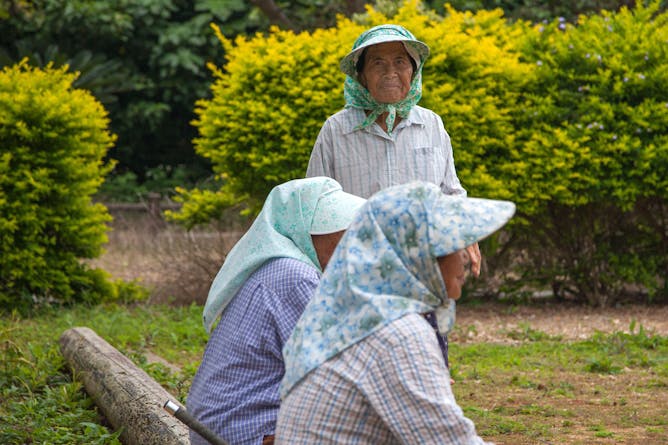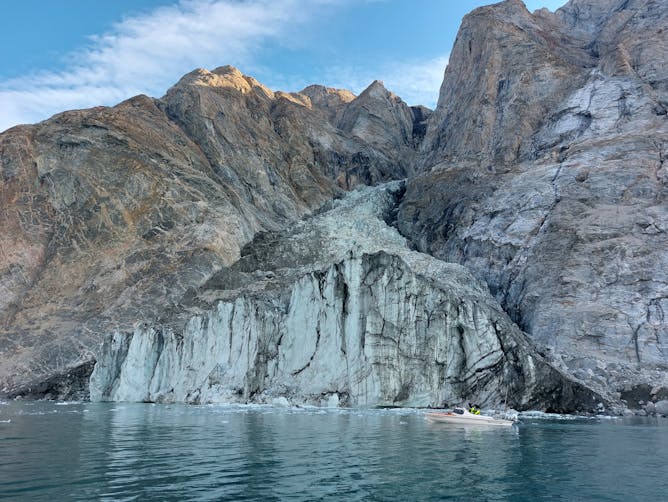|
|
|
|
The secret to living to an incredibly old age could be far more straightforward than previously thought, as you’ll find out in this interview with a scholar at University College London’s Centre For Longitudinal Studies.
Instead of eating olive oil, walking 10,000 steps a day or never having children, Saul Justin Newman’s best advice for living past 100 is to simply not get a birth certificate when you are born. For those of us who didn’t have the foresight at the time to not ask for a birth certificate, misplacing the document is of course an option, too.
He has tracked down 80% of the people aged over 110 on Earth and has found that the most common trait they share is not a lifestyle choice so much as the fact that their date of birth has not been properly recorded – and that their real age is unlikely to be what they say or think it is. And these are the lucky ones. In fact, many of the oldest people in the world are already dead.
In the amphibian world, the ability to live a long and prosperous life often comes down to the quality of the glue you’re able to excrete. Frogs are able to produce slimy adhesives at a moment’s notice as a defence mechanism against predators, who find these gloopy prey impossible to digest and sometimes even poisonous. Get stuck into this explainer to find out more.
Questions of migration continue to be framed in negative terms, yet there’s good evidence to show that the movement of people brings economic benefits. Europe could be a hub of migrant entrepreneurship if it worked out how to make the most of the people looking to set up businesses within its borders. We’ve been considering ways to help make that happen and at options for making universities more
commercially innovative, too.
|

|
Laura Hood
Senior Politics Editor, Assistant Editor, The Conversation UK
|
|

Saul Justin Newman, UCL
Saul Newman’s research suggests that we’re completely mistaken about how long humans live for.
|
|
|

Shabnam Zaman, Vrije Universiteit Brussel
Our research figured out exactly how some frogs produce glue – and it might help us make new, innovative adhesives for surgery.
| |

Victoria Donnaloja, University of Essex
Like hundreds of thousands of others, Paola Egonu only became an Italian citizen as a teenager despite being born there.
|

Clément Lemineur, Université Côte d’Azur; Clément Naveilhan, Université Côte d’Azur; François Dernoncourt, Université Côte d’Azur
Over the same distance, you’ll go faster by running, but you’ll be active for longer by walking. What costs us the most energy?
| |

Pedro Adalid Ruíz, Universidad CEU San Pablo
A diverse and safe school has to actively involve families and the local community, as well as students and teachers.
|
|
|
|
|

César Martín-Gómez, Universidad de Navarra; Arturo H. Ariño, Universidad de Navarra
Ventilation systems pump polluted air from our homes – which contains particulate matter and methane – into the environment.
|

Stephen Hicks, UCL; Kristian Svennevig, Geological Survey of Denmark and Greenland
This tsunami, triggered by a melting glacier in Greenland, is a sign of things to come.
|
|
|
-
Valérie Mérindol, PSB Paris School of Business; David W. Versailles, PSB Paris School of Business
To work toward the development of innovation in their regions, French universities must undergo a profound transformation. They need to develop differentiated strategies and cannot succeed on their own.
-
Daniela Bolzani, Università di Bologna; Rosana Silveira Reis, ISG International Business School; Vittoria G. Scalera, University of Amsterdam
Despite some incubator programmes tailored for entrepreneurs, Europe is lagging behind in areas such as language teaching.
|
|
| |
| |
| |
| |
|
|
|
|
|
|
|